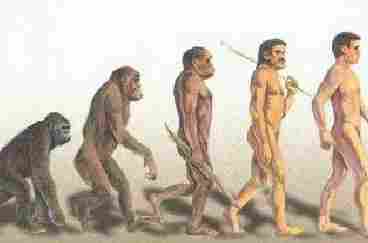...was On The Origin Of Species by Charles Darwin, although its follow-up The Descent Of Man raised equally many questions. The challenge this presented to the doctrine of Creationism, so central to the idea of faith in a Christian society, was immense. Scholars still debate its points now, and the Catholic Church did not recognise the theory of evolution until 1996. It took Darwin himself 20 years to publish, so nervous he was of the profound impact that it would have.

Darwin's home, at Downe in Kent, is the size of a manor house (it was enlarged to house his wife, seven children, various servants and a large flow of family and friends visiting) yet seems surprisingly homely. Many of the rooms have been restored to their Victorian state, and contain much of the Darwin family's paraphernalia. A piano in the drawing room. Croquet and tennis equipment in a cupboard by the back door. Drawings and paintings of the family adorning the walls.
A balance is struck between Darwin the family man and Darwin the scientist. His cluttered study is viewable, containing many of his scientific effects - microscopes, specimen collections, notes. It's a very strange feeling, to stand there and visualise the man himself sitting in THAT chair, hunched over THAT table, writing the words that would change the world. And yet he would happily allow the children to run up and down the corridors, to treat the house as a playground, to move in and out of his scientific inmost sanctum when the needed to borrow some of the equipment for their own ends.
History is not about places, or events, or even time. It is about people. The people who built the places, shaped the events, marked our progress through time, as the human race developed. Evolved, you could say.
Downe House is about family. That is what makes it so special and, as my children ran through the orchard and played games on the cracked rectangle of concrete that was once Charles Darwin's tennis court, I could see a reflection of humanity that 'History' can often overlook. Perhaps that's why I continue to take them to places like this, and will continue to do so until they're old enough to go out in the world and make their own history.


No comments:
Post a Comment